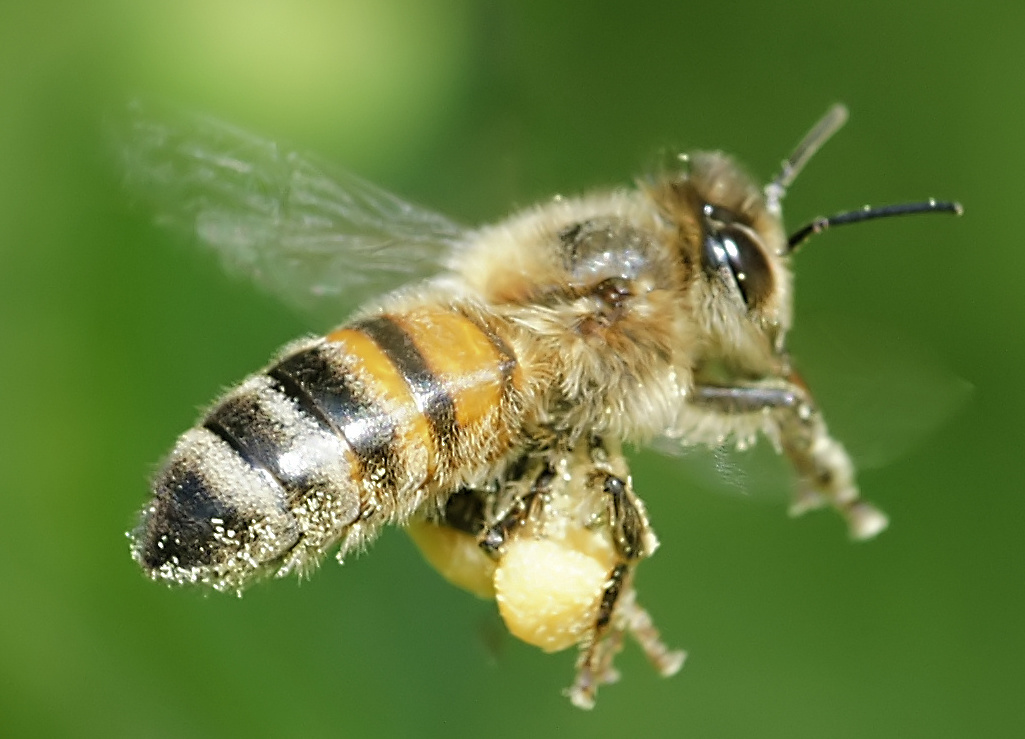
The EU has banned outdoor use of neonicotinoid pesticides on the grounds that they harm bees (and probably other insects and other invertenrates too).
What they say:
Buglife – ‘Today is a red letter day for the continent’s pollinators, we salute and thank all of the organisations, members of the public and politicians who have stood up for the bees and secured this much needed decision. This has been a long haul, arguably the ban should have come in years ago, but the NFU and pesticide industry have been wholly obstructive and have managed, mainly by use of misleading propaganda, to sustain the harm to bees and other wildlife for several years.‘
Friends of the Earth – ‘Big win: EU bans bee-harming neonics on all outdoor crops‘
Bayer – ‘a sad day for Europe and a bad day for farmers‘
[registration_form]
Good news… at last
A brilliant outcome – well worth the fight! At last, a step in the right direction for wildlife.
An excellent decision, well done to everyone who participated.
Does this include peoples gardens, because a lot of shop bought pesticides have neonics in them
Michael – I believe so as only greenhouses are excluded. Though it is difficult to police garden use.
Of course it includes gardens, and no, shop bought pesticides contain the three neonicotinoids which have been partially banned for the past five years.
I’m not celebrating yet until I know whether potted plants sold to the public, often labelled bee friendly and usually, initially grown under cover, are exempt from this ban.
Possibly going to be a case of buyer beware!
All plants grown under glass are exempt from the ban. Buy seeds and grow them yourself:-) Maybe someone will be able to prosecute Garden Centres selling plants labelled as ‘bee friendly’, but found to be treated with any of the three banned neonics, as false advertising?
My understanding is that the measure will ban use in greenhouses on plants that are then transferred live out of the greenhouse. However, plants in a greenhouse would still pick up contamination from use in previous years, so in itself this does not make pot plants neonic free. Of course leakage from greenhouses is a very significant source of freshwater pollution as well.
Will this apply to us post-Brexit or will it join the rest of protections to be burned on a pyre in order to placate the American Agriculture Industry for a face-saving trade deal?
It already applies to us since Gove reversed the Government’s position on opposing an extended ban.
Three neonicotinoids only have been banned.
are also believed effected, both indirectly – up the food chain – and directly… possibly even to human beings…
Neonics Linked to Bird Declines
Bird Decline ‘Smoking Gun’ for Neonics
Full research letter in Nature
If surface water concentrations of neonicotinoids are doing this to both insect and bird populations, how much of the vertebrate decline is due to the loss of their insect food supply, and how much to the direct ingestion of neonicotinoids themselves?
See the Abstract: A review of the direct and indirect effects of neonicotinoids and fipronil on vertebrate wildlife
“All three insecticides exert sub-lethal effects, ranging from genotoxic and cytotoxic effects, and impaired immune function, to reduced growth and reproductive success, often at concentrations well below those associated with mortality. Use of imidacloprid and clothianidin as seed treatments on some crops poses risks to small birds, .”
If neonicotinoids can be shown to adversely effect vertebrates, what might the levels in surface waters measured in the Netherlands be having on human beings:
See: Nicotine-Like Effects of the Neonicotinoid Insecticides Acetamiprid and Imidacloprid on Cerebellar Neurons from Neonatal Rats
“Conclusions/Significance
This study is the first to show that ACE, IMI, and nicotine exert similar excitatory effects on mammalian nAChRs at concentrations greater than 1 µM. Therefore, the neonicotinoids may adversely affect human health, especially the developing brain.”